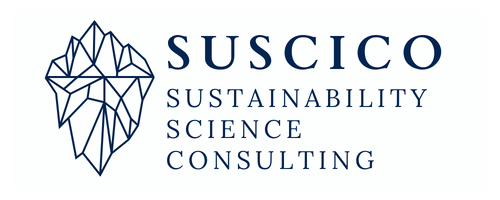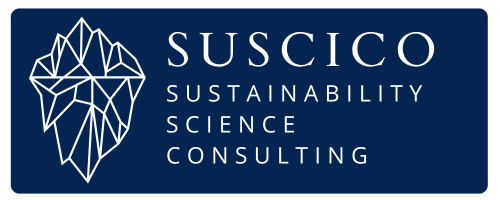Sustainability Report Assurance in Malaysia: New Framework and Timelines
- 05/08/2025
- Posted by: Ildar Usmanov
- Categories: Compliance, ESG Reports, Trends

Malaysia is taking a major step forward in sustainability report assurance, introducing a regulatory framework that will make external verification of ESG disclosures mandatory in the coming years.
On 25 June 2025, the Advisory Committee on Sustainability Reporting (ACSR), chaired by the Securities Commission Malaysia (SC), launched a public consultation on the http://Proposed Framework for Sustainability Assurance. The consultation runs until 6 August 2025 and aims to improve the credibility, accuracy, and reliability of sustainability disclosures.
This initiative complements the National Sustainability Reporting Framework (NSRF), launched in September 2024, which adopts the IFRS Sustainability Disclosure Standards (IFRS S1 & S2) as the baseline for sustainability reporting in Malaysia. While NSRF sets the content of disclosures, the new framework focuses on the assurance of sustainability reports—verifying that the reported data is both accurate and trustworthy.
Why Sustainability Report Assurance Matters
Independent ESG assurance reports are becoming a global best practice, giving investors, regulators, and the public confidence that companies’ sustainability claims are backed by evidence.
By implementing structured assurance of sustainability reports, Malaysia aims to:
-
Reduce greenwashing risks.
-
Strengthen investor trust.
-
Improve the quality and consistency of ESG data.
The framework’s explicit aim is to tackle greenwashing, reinforce investor confidence, and establish sustainability reports as a trusted basis for investment decision-making.
Key Features of the Proposed Framework
1. Adoption of International Standards
-
ISSA 5000 – International Standard on Sustainability Assurance.
-
ISQM 1 – quality management requirements for assurance providers.
-
IESSA – ethics and independence framework for practitioners.
2. Regulatory Oversight
The Audit Oversight Board (AOB) will register, inspect, and enforce compliance among sustainability assurance providers.
3. Competency Requirements for Engagement Leaders
-
Relevant degree or professional qualification.
-
≥6 years assurance/audit experience (≥2 years as team lead).
-
Recognised sustainability certifications.
-
20 hours of annual sustainability-related CPD.
4. Phased Implementation Timeline
| Phase | Scope of Assurance | Applicability | Effective Period Start |
|---|---|---|---|
| Phase 1 | Scope 1 & 2 GHG emissions | Main Market issuers ≥RM2b market cap | 1 Jan 2027 |
| Other Main Market issuers | 1 Jan 2028 | ||
| ACE Market & large non-listed (≥RM2b revenue) | 1 Jan 2029 | ||
| Phase 2 | IFRS S1 core content + Scope 3 | Same groups as above, in sequence | 1 Jan 2030, 1 Jan 2031, 1 Jan 2033 |
Who Can Lead Sustainability Assurance Engagements?
The proposed framework adopts a profession-agnostic approach, meaning both accounting and non-accounting professionals can serve as sustainability assurance engagement leaders.
However, they must:
-
Register with the Audit Oversight Board (AOB).
-
Hold a recognised degree/diploma (MQA-accredited) or professional qualification.
-
Have at least 6 years of audit/assurance experience (2 years as a team leader or supervisor).
-
Hold an AOB-recognised sustainability certification (e.g., programmes offered by SIDC or other professional bodies).
-
Complete a minimum of 20 hours of sustainability-related CPD training annually, covering ISSB standards, assurance methodologies, ethics, and applicable Malaysian laws.
Supporting Initiatives
-
PACE (Policy, Assumptions, Calculators, Education) – tools and training to help companies meet NSRF requirements.
-
Board Guidance – practical resources for embedding sustainability into governance.
-
Environmental Quality Act (EQA) 1974 – remains the main environmental law, with higher penalties effective July 2024.
How Companies Should Prepare for Sustainability Report Assurance
-
Assess Readiness Now – review your sustainability reporting process for gaps against NSRF and ISSA 5000.
-
Prioritise Data Accuracy – start with Scope 1 & 2 GHG emissions data, as assurance begins as early as 2027.
-
Select Qualified Assurance Providers – ensure partners meet AOB registration and competency rules.
-
Use PACE Resources – access policy templates, calculators, and training.
-
Integrate into Governance – align ESG assurance reporting with board oversight.
Ensure your engagement leader holds certified sustainability assurance credentials recognised by AOB and commits to the mandatory 20 hours of annual CPD training.
Conclusion
The introduction of sustainability report assurance in Malaysia is more than a compliance requirement—it’s an opportunity to strengthen corporate credibility and investor confidence.
By preparing now for the assurance of sustainability reports, companies can avoid last-minute compliance pressure, meet both NSRF and ISSA 5000 requirements, and demonstrate leadership in ESG transparency.
If your organisation needs an ESG assurance report readiness assessment, SuSciCo can help you build systems that meet international assurance standards while aligning with Malaysian regulatory timelines.

SuSciCo helps in implementing Sustainability Practices
At SuSciCo, we help companies implement a Customer-Centric Sustainability approach by integrating ESG principles into their strategies. Our services include GHG management, sustainability reporting (GRI, IFRS, Bursa Malaysia), supply chain optimization, and ISO 14001 EMS development. We offer PCF and LCA assessments, sustainable procurement strategies, and waste management solutions to align products and operations with customer expectations. Through tailored ESG training and stakeholder engagement, we empower businesses to reduce environmental impacts, foster innovation, and build trust for sustainable growth.



